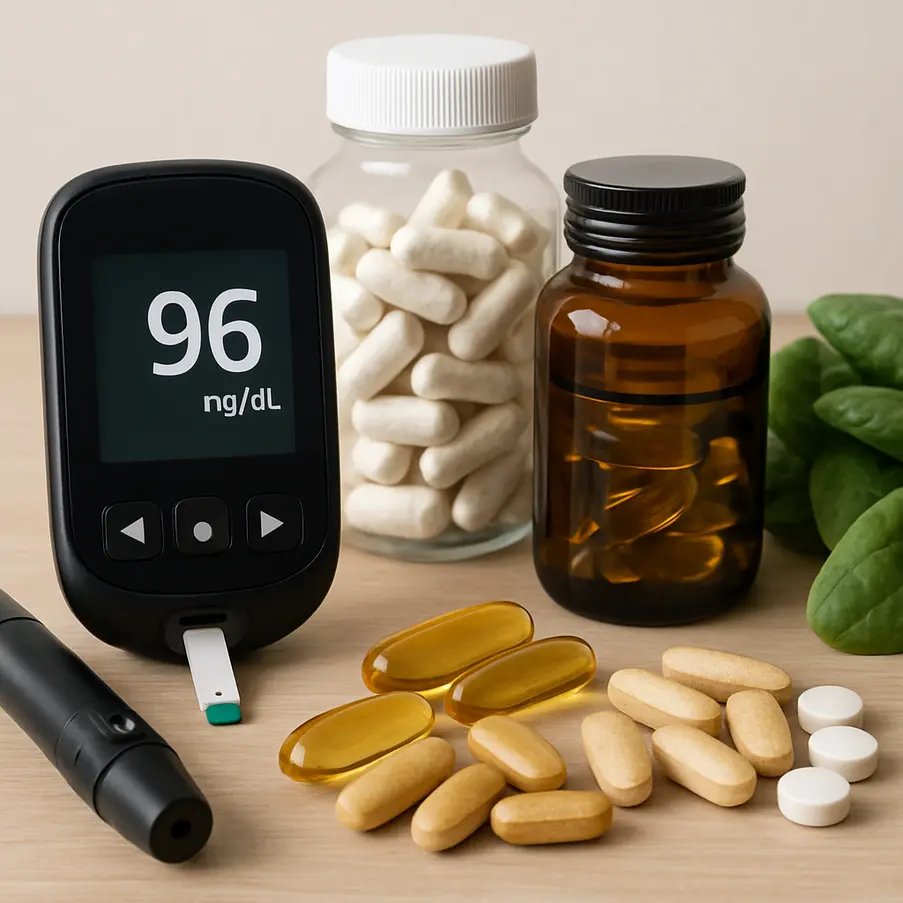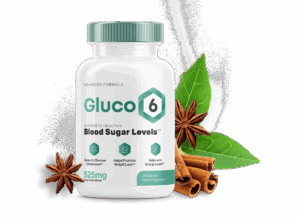Blood sugar monitoring devices have revolutionized personal health management by enabling individuals to track their glucose levels with precision. In particular, their integration with nutritional supplements offers a powerful approach to managing blood sugar more effectively. These devices provide critical data that can help tailor supplement usage, ensuring that individuals achieve optimal health outcomes. This synergy between technology and nutrition represents a significant stride in personalized healthcare, providing detailed insights for better health choices.
Understanding Blood Sugar Monitoring Devices
Blood sugar monitoring devices have undergone significant evolution over the decades. From cumbersome early devices to sleek, portable gadgets, each advancement has improved features and accuracy. Continuous Glucose Monitors (CGMs) represent the pinnacle of this technology. They allow users to track their glucose levels in real-time, reducing the need for constant finger pricks.
Features of Modern Devices:
- Real-Time Tracking: Most devices provide instantaneous readings, offering insights into glucose fluctuations.
- Data Recording: These devices often sync with smartphone apps, storing extensive data logs that can reveal patterns over time.
- Alerts and Predictions: Advanced models can alert users to impending hypoglycemic or hyperglycemic events, enabling proactive management.
One innovative feature is the ability to use data for predictive analysis. These devices help visualize how certain foods or activities affect blood glucose level. This detailed information can be transformative for individuals, particularly those who use nutritional supplements as part of their health regimen.
Accuracy and Benefits:
Accuracy has greatly improved, with minimal discrepancies compared to lab results. This precision allows users to make informed decisions about diet and supplement intake. For instance, a CGM might reveal how a specific supplement affects glucose levels, empowering users to adjust intake accordingly. This responsiveness is crucial, particularly for managing conditions like diabetes.
Such detailed monitoring supports dietary choices and the integration of supplements, ensuring they are not counterproductive to health goals. By understanding their body’s response to different inputs, users can fine-tune their approach to wellness.
The significance of these devices extends beyond mere health data collection. They enable proactive health management, bridging the gap between diet and technology. The insights gleaned can help users optimize their dietary choices, including their use of supplements, fostering a holistic approach to health.
For those exploring broader wellness practices, pairing glucose monitoring with consistent physical activity offers balanced benefits. One might consider reviewing effective exercise strategies to complement these technological insights.
Understanding the intricacies of blood sugar monitoring empowers users in their health journey, offering not just numbers, but a roadmap to better dietary and supplemental choices.
The Role of Supplements in Blood Sugar Management
Balancing blood sugar levels is crucial for maintaining good health and preventing disease. While diet and exercise are fundamental, nutritional supplements can provide additional support. By leveraging data from blood sugar monitoring devices, we can refine our approach and utilize supplements more effectively.
Key supplements, like chromium, cinnamon, and alpha-lipoic acid, play significant roles in managing blood sugar levels. Chromium is a trace mineral that enhances insulin sensitivity and improves glucose metabolism. Studies show that supplementing with chromium picolinate helps reduce blood sugar levels in individuals with insulin resistance and type 2 diabetes. By integrating real-time data from blood sugar monitors, users can observe how chromium affects their unique metabolic responses, adjusting dosages accordingly.
Cinnamon is another potent supplement known for its ability to mimic insulin. It helps slow gastric emptying and improves glucose uptake by cells, leading to more stable blood sugar levels. Ceylon cinnamon, in particular, is more effective and has lower coumarin content, reducing the risk of liver damage. For those monitoring their blood sugar, cinnamon can be an effective, natural way to ease fluctuations, especially after meals. By comparing glucose data before and after cinnamon intake, users can fine-tune their doses for optimal results.
Alpha-lipoic acid (ALA) is an antioxidant that not only supports glucose metabolism but also alleviates neuropathic pain associated with diabetes. ALA improves insulin sensitivity and reduces oxidative stress. Those using blood sugar monitoring devices can track improvements in glucose stability and neuropathic symptoms alongside ALA supplementation. This feedback loop enables more personalized and effective management strategies.
Tools like blood sugar monitors provide invaluable insights, allowing for a more targeted approach to supplementation. Users can track the effects of these supplements and adjust their intake for improved efficacy. This integration of technology and nutritional knowledge fosters a proactive approach to managing blood sugar levels. For more insights into maintaining optimal health, you may explore tabata workouts for quick fat burning to supplement your fitness routine along with your dietary management.
Maximizing Health Benefits through Integrating Technology and Supplements
Combining blood sugar monitoring devices with nutritional supplements can pave the way for personalized health plans. Real-time data from these devices offers a snapshot of how your body responds to dietary intake. By interpreting this glucose data, individuals can tailor supplement usage for optimal results.
A key to success in this integration lies in the tracking and adjusting phase. Maintain a log using apps or spreadsheets to monitor how specific supplements influence your glucose levels. For instance, if after taking a magnesium supplement your blood sugar stabilizes more efficiently, it’s a sign to continue this supplement.
Strategies for Personalization
Personalized health plans involve not only tracking but adjusting both supplements and dietary intake based on real-time data. If patterns emerge where post-meal spikes occur despite supplement intake, consider adjustments in dosage or try different supplements known for managing blood sugar, such as cinnamon or chromium.
Furthermore, tracking helps in distinguishing how specific foods interact with supplements. Pairing technology with dietary habits, like those outlined in this article on the Low FODMAP diet, could play a critical role in stabilizing glucose levels. Such diets can minimize blood sugar fluctuations, making supplement effects more noticeable.
Leveraging Historical Data
Utilize historical glucose data to identify long-term trends. Are there recurring periods where your blood sugar rises? Adjust supplements and dietary habits accordingly. Reviewing this data weekly or monthly enables proactive decisions and better understanding of your body’s needs.
Track Your Supplement Schedule
In addition to personalized dietary plans, a regular supplement schedule based on glucose trends is crucial. Devices can remind you to take supplements at times of day when they will be most effective. For example, certain supplements may be more beneficial if consumed pre-meal to combat expected glucose spikes.
Integrating technology with supplements facilitates a tailored health approach. It empowers individuals to make informed decisions, ensuring reduced blood sugar volatility. As glucose data continues to guide dietary and supplement choices, individuals gain control over their health journeys, paving the way for enhanced wellbeing.
Future Trends in Blood Sugar Monitoring and Supplements
Advancements in blood sugar monitoring technology are reshaping how we understand and manage our health, particularly in synergy with nutritional supplements. Continuous glucose monitors (CGMs), for instance, are becoming increasingly sophisticated, providing data-rich insights into our daily eating habits.
Looking forward, expect to see even more integration between blood sugar monitoring devices and supplement usage. New sensors are being developed that could assess other blood markers in real-time, beyond just glucose levels. Imagine a device that not only checks glucose but also evaluates vitamins and amino acids, offering a comprehensive health picture at your fingertips.
Personalized health tech is rapidly advancing. Upcoming blood sugar monitors might incorporate artificial intelligence to offer tailored supplement recommendations. For example, if your blood sugar levels frequently spike after meals, these devices could suggest specific fiber supplements to help regulate glucose absorption, enhancing metabolic function.
Moreover, I foresee the growth of smart dietary ecosystems. These systems will likely see integration with calorie-counting apps, providing users with suggestions based on real-time data analysis. Users could link their CGM to an app—not unlike those reviewed in calorie counting apps with barcode scanners. With this detailed understanding of nutrient intake, users can make informed decisions, choosing supplements that thoughtfully align with dietary needs.
Wearable tech may also evolve to become more non-intrusive and user-friendly, providing a seamless experience. New materials could allow sensors to be embedded within clothing or accessories, offering continuous health monitoring without the discomfort of current adhesive patches.
Integration features are set to enhance collaborative healthcare. Physicians could access data from these devices remotely, allowing for prompt interventions and precise advice on supplementation. This would foster an environment of proactive healthcare, where preventive measures take precedence over reactive ones.
As I see it, the future of blood sugar monitoring and supplement usage is intertwined, promising highly personalized health insights and actions. This integration promises not only better health outcomes but also a more educated and proactive approach to personal health management.
Final words
The intersection of blood sugar monitoring devices and nutritional supplements marks a meaningful advance in personalized healthcare. These technologies provide invaluable insights into individual health patterns, allowing for more tailored and effective supplement regimens. I encourage you to explore our website for more informative articles on optimizing personal health management.





Claritox Pro
$ 69,00Original price was: $ 69,00.$ 49,00Current price is: $ 49,00.Mitolyn
$ 99,00Original price was: $ 99,00.$ 79,00Current price is: $ 79,00.Gluco6
$ 69,00Original price was: $ 69,00.$ 39,00Current price is: $ 39,00.Nagano Tonic
$ 79,00Original price was: $ 79,00.$ 39,00Current price is: $ 39,00.